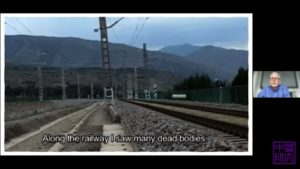Most people in China still fail to understand what
Mao Zedong did right, and what he did wrong, argues
author Zhang Lijia in the South China Morning Post. Especially now current president Xi Jinping is lending some of his legacy, an open debate is urgently due, although it is unlikely to happen.
Zhang Lijia:
Today Mao’s legacy divides the nation. Liberal economist Mao Yushi (not related) has repeatedly written articles harshly criticising Mao and made calls to judge him as a man not a god.
Still I would say that people who look at Mao critically are in the minor ity. According to online reports, a Sina survey had found that some 82 per cent of Chinese viewed Mao mostly favour- ably. For many, he was the man who drove away the imperial powers and made the Chinese people “stand up” in the world.
Every day, thousands of people queue up to see his embalmed body in- side the Mao mausoleum in Tianan- men; a lot of taxi and truck drivers as well as many rural households still hang Mao’s pictures, out of respect or the need for a lucky charm.
Many of his admirers, the young in particular, don’t know the whole truth about him, something they can’t learn at school or from books on the mainland. Others chose not to know the negative stories about him.
Mao has come to represent a national hero who would stand up to foreign aggression. Whenever there’s a wave of anti-Western sentiments, Mao searches pop up on the internet. For example, during the Nato bombing of the Chinese embassy in Belgrade in 1999, some were saying: if Mao were still alive, he would have done something to teach the imperialists a big lesson.
There’s also a kind of deeply-rooted emperor worship here. In spring 1996, I interviewed Wu Hanjin, the party secretary of Gushui village, perched in Loess plateau of Shaanxi province. He built a temple in honour of Mao be- cause “Chairman Mao was the best emperor China ever produced”.
Our new leader Xi Jinping, though not a Maoist, likes to borrow some Maoist-style rhetoric while following the path paved by Deng Xiao- ping. On the one hand, the party needs Mao, China’s founding father, as a source for its legitimacy; on the other hand, it doesn’t want him to become a hurdle to reforms.
Since Mao and the Communist Party are inextricably connected, it’s hard to imagine that the current leadership would allow an objective and thorough reassessment of the man. To “discredit Comrade Mao Zedong would mean to discredit our party and the state”, as Deng pointed out.
In January, Xi issued the so-called two no-denials – not to deny what was done before the reforms based on what happened after it and vice versa. But this conservative approach will not solve the dilemma of Mao’s legacy.
Personally, I think this is counter- productive.
The right thing but the hard thing to do is to allow an open debate to show what kind of man Mao really was. He might have cried for losing a trusted guard but this can’t conceal the fact that he had no regard for human life.
When millions were dying in the early 1960s, he exported grain abroad, partly to show that socialist China was thriving. Most importantly, we must learn from the mistakes of Mao. With his god-like status, he was able to launch his ridiculous political campaigns such as the Great Leap Forward where he fantasied about “overtaking Britain and catching up with America” or his Cultural Revolution where he wanted to overthrow the so-called revisionists that existed only in his muddled mind. These blunders were as much his as the undemocratic system’s.
Only when Mao is out of the way can China really prepare itself to transform, if gradually, to a modern society with democratic values. Sadly, I don’t expect this will happen in the foreseeable future.
A copy of her article can be found at Zhang Lijia´s website.
Zhang Lijia is a speaker at the China Speakers Bureau. Do you need her at your meeting or conference? Do get in touch or fill in our speakers´request form.
